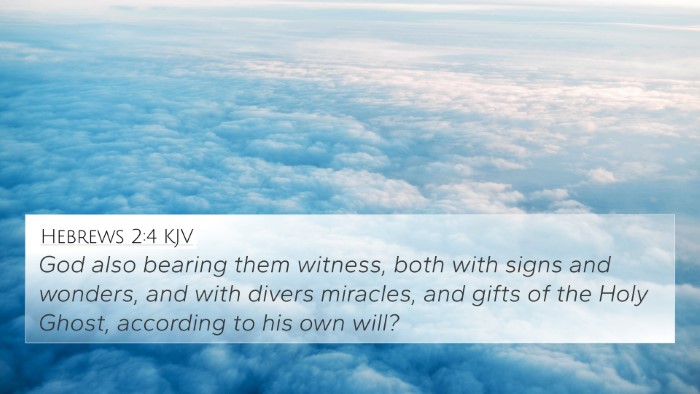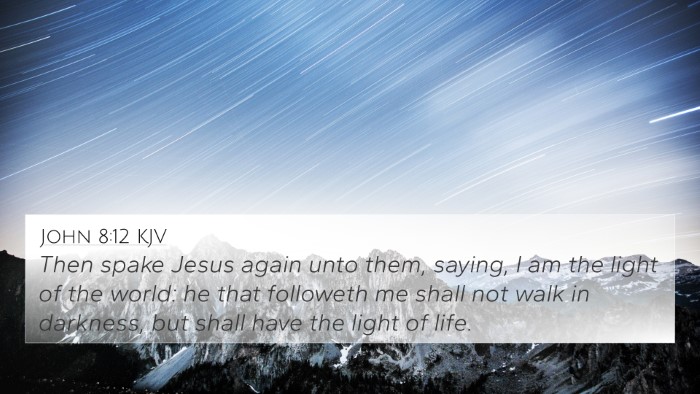Understanding John 8:18
John 8:18 states, "I am one that bear witness of myself, and the Father that sent me beareth witness of me." This verse presents a profound declaration by Jesus regarding His identity and mission. Through the contextual analysis and insights from public domain commentaries, we can delve deeper into the meaning behind these words.
Historical Context
In the context of the Gospel of John, Jesus speaks to the Pharisees, who were skeptical of His divine authority. The challenge from the religious leaders informed His defense: He signifies Himself as not just a singular witness but as one who operates in unity with God the Father, who also attests to His divine mission.
The Dual Testimony
- Self-Witness: According to Matthew Henry, Jesus emphasizes His role as a self-witness. He speaks with authority and truth, testifying to His nature and divine purpose without needing external validation.
- The Father's Witness: In complement, Albert Barnes points out that the Father’s testimony reaffirms Jesus' claim, establishing His divine origin and mission, as seen throughout the New Testament.
- Scriptural Confirmation: Adam Clarke further articulates that the connection to the Father's witness indicates the divine consensus about Jesus' identity and the importance of recognizing both witnesses to grasp the full understanding of His mission.
Thematic Connections
This verse opens a pathway to explore inter-Biblical dialogue, creating connections between various scripture passages:
- John 5:31-32: Jesus speaks of His testimony being insufficient without the Father's endorsement.
- Matthew 3:17: At Jesus' baptism, the Father acknowledges Him as His beloved Son.
- John 10:30: Christ declares unity with the Father, reinforcing the dual witness concept.
- Hebrews 1:1-3: God speaks through His Son, further confirming His authority.
- Revelation 1:2: Testimony of Jesus Christ is a key theme throughout the Book of Revelation, echoing the dual witness narrative.
- 1 John 5:7: The doctrine of a threefold witness—the Father, the Word, and the Holy Spirit—reflects the same core truth.
- John 14:10: Jesus explicitly states that His words come from the Father, linking His mission to divine authorization.
- Luke 9:35: The voice from the cloud reinforces Jesus as the chosen one, a further witness from the Father.
- Acts 10:38: The narrative highlights Jesus' ministry affirmed by God through miracles and wonders.
- John 1:32-34: John the Baptist testifies of Jesus with a divine endorsement from God.
Application of Cross-Referencing
In understanding John 8:18, employing tools for Bible cross-referencing can enrich personal study and sermon preparation:
- Bible Concordance: Locate themes and verify connections between various passages effectively.
- Cross-reference Bible study: Analyze different scriptural viewpoints on Jesus' nature and authority.
- Comprehensive Bible cross-reference materials: Utilize resources that consolidate witness accounts for deeper insights.
Conclusion
John 8:18 serves as a pivotal moment in understanding the identity of Jesus within the broader narrative of Scripture. The dual testimony of Christ and the Father elevates His claims and sets a foundation for the Christian faith. Through comparative Bible verse analysis and cross-referencing Biblical texts, one can appreciate the remarkable interconnectivity of Scripture, reinforcing the truth of Jesus' divine mission.

















